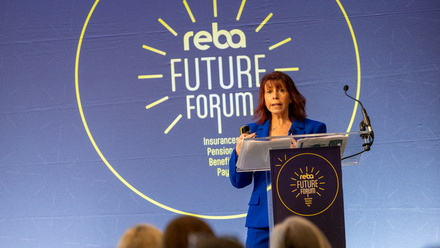Employee culture: the importance of being authentic

Your company culture should be a reflection of who you are as a business. In some ways, it is the most tangible manifestation of its personality; company culture brings a business to life through the daily experiences of all who work there – and indeed many others associated with it, such as clients, shareholders or suppliers. And one of the most valuable opportunities that your culture offers you is the chance to encourage specific behaviours from your workforce – behaviours that engender your values and goals. If your employee culture is in the background of your business, it means that you are not exploiting the power it has to help you accomplish all that your organisation set out to achieve.
So how can you bring your company culture into the foreground, and really get it working for you?
Reflecting your organisation’s values and goals
The first step is to reflect on the overall goals of the organisation. Why do you exist? Then consider, what are the values and behaviours that you need to see in your staff in order to achieve this goal? For example, imagine you are a financial organisation whose sole purpose is to make money. You want your people to be single-minded and ruthless in their efforts to achieve ever-bigger profits.
In this instance, it would be most effective to create a company culture that is pretty calculating and competitive – and this could be facilitated by prioritising rewards such as financial bonuses for meeting or exceeding targets. You would want clear visibility of these rewards, perhaps introducing high-profile ceremonies each month for the most successful team member, giving people something to strive for as they fight for their moment in the spotlight as the winner of the ‘highest achiever’ accolade.
Now, of course, this is a very extreme example – and a culture of this nature would only suit a specific personality type, and probably terrify most other people. But it works to highlight how culture should reflect the company’s objectives. A culture so brutally competitive could in fact work against a charitable or public sector organisation whose overarching goal is to encourage social mobility, for example. It is likely that the people most suited to a role in an organisation which aims to support and empower society’s disadvantaged would not thrive in a culture where they are effectively pitted against each other.
An altruistic institution of this nature would more productively foster a culture of teamwork and support, rewarding behaviours that reflect values such as kindness, humility and generosity. Perhaps this company would not single out individuals for rewards but instead recognise whole teams, or even pledge to provide a monthly sum to a nominated charity when targets are met.
Aligning rewards with company culture
So the first step is to make sure that your employee culture is strategically in line with your business objectives, and reflects and encourages its values by rewarding behaviours that are consistent with them. But when it comes to the method and means of providing such rewards, it is important to ensure that these too are aligned with, and representative of, your company culture.
Going back to our two example organisations, it is doubtful that you’d get the most out of staff in company one by incentivising them with the promise of dinner at a local five-star restaurant. The nature of the company will likely mean that staff can easily afford to dine at such places, and are probably already regulars. Aside from financial rewards in the shape of monthly bonuses as already referenced, in this instance it would be more productive for this company to offer rewards that cannot be obtained elsewhere – and a sophisticated reward and recognition programme will be able to provide such unobtainable prizes, such as much sought-after tickets to a sold-out music concert, or the West End show everyone is talking about.
Organisation two, our social mobility charity, may not have the budget for such extravagant gestures, but could instead design a scheme that offers rewards such as time off in recognition of staff effort. Jobs in this sector are notoriously emotionally demanding, so overstretched and overwrought staff may value nothing more than a bonus day or week off, to spend with their own families.
A culture that’s fit for purpose
Both of these example businesses are extreme, almost to the point of parody, but the key point here is that employee culture has to be fit for purpose, and each business has its own unique and individual purpose. It follows therefore that each business must have its own unique, appropriate and fitting culture. You cannot transplant culture from one organisation to another – as many failed mergers and acquisitions can attest to.
Culture must be designed and nurtured with your organisation’s specific values and personality in mind. Leaving it to chance, or attempting to espouse the culture of a business with a very different goal and vision risks missing out on the opportunity to create a truly authentic and productive place to work. And in the process, it will better enable you to hire the most suitable workforce to do the job – whatever that job may be.
Employee recognition can help create a healthy company culture. Download Xexec’s free e-book to find out more about how to build an effective recognition strategy.
This article is provided by Xexec.
Supplied by REBA Associate Member, Xexec
Xexec is the UK's leading Reward and Recognition and Employee Benefits provider.







